


xxxxxIn his novels the Russian writer Fyodor Dostoevsky gained fame for his profound psychological insight into the nature of the human soul, and played, thereby, a major part in the development of the 20th century novel, particularly as a precursor of existentialism -
FYODOR DOSTOEVSKY 1821 -
Acknowledgement
Dostoevsky: by the Russian photographer Konstantin Shapiro (1840-
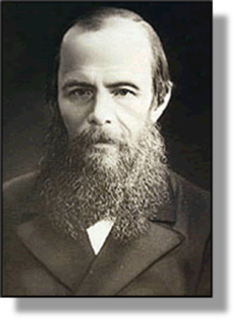 xxxxxCrime and Punishment of 1866 was the first major work of the Russian novelist Fyodor Dostoevsky. Set in the back streets of St. Petersburg, it provided a penetrating analysis of the mental torment of a young, destitute student who murders an old, miserly pawnbroker out of hatred and the need for money, but finds redemption through suffering. It was followed by two other psychological studies in depth, The Idiot of 1869, and his masterpiece The Brothers Karamazov, produced in November 1880, just a few months before his death. These three works in particular have marked him out as one of the greatest novelists in world literature. As a writer his psychological penetration into the nature of the human soul had a profound influence on the development of the 20th century novel, not least on the early soundings of existentialism.
xxxxxCrime and Punishment of 1866 was the first major work of the Russian novelist Fyodor Dostoevsky. Set in the back streets of St. Petersburg, it provided a penetrating analysis of the mental torment of a young, destitute student who murders an old, miserly pawnbroker out of hatred and the need for money, but finds redemption through suffering. It was followed by two other psychological studies in depth, The Idiot of 1869, and his masterpiece The Brothers Karamazov, produced in November 1880, just a few months before his death. These three works in particular have marked him out as one of the greatest novelists in world literature. As a writer his psychological penetration into the nature of the human soul had a profound influence on the development of the 20th century novel, not least on the early soundings of existentialism.
xxxxxDostoevsky was born in Moscow, the son of a retired military surgeon who worked at a local hospital for the poor. Following the death of his mother in 1837, he was sent to the Academy of Military Engineering at St. Petersburg and received a commission in 1841. While at St. Petersburg, however, he also showed a keen interest in literature, and his wide variety of reading included works by Homer, Shakespeare, Pascal, Corneille, Racine, Balzac, Hugo, Scott, Goethe and Schiller. This interest shaped his future. In 1843 he left the army and took up writing as a career. He made an auspicious start. His first work, a short novel entitled Poor Folk, produced in 1846, was a stark, moving story that won him wide acclaim and celebrity status.
xxxxxBut his good fortune was short-
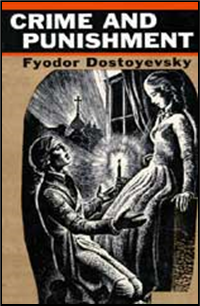
xxxxxHe returned to St. Petersburg in 1859 and took up his literary career, but not entirely from where he had left off. He had learnt to conform. He was now a monarchist and a devout Orthodox Christian. Furthermore, the harsh, brutal conditions he had endured during his experience in prison -
xxxxxThen in 1864 came his Notes from the Underground, a work which, though little read today, proved a veritable watershed in his literary development -
xxxxxAround the time of its publication, however, Dostoevsky fell on hard times, not helped in any respect by his obsession with gambling and the money losses he incurred. In the early 1860s the income from his writing and from Time -
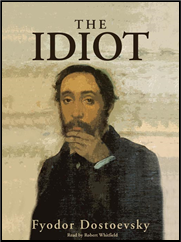
xxxxxHowever, on his return to St. Petersburg his fortunes improved somewhat. The Gambler, written within a month and capitalising on his own tortured experiences at the gaming table, saved him from total financial ruin, and the following year he produced the first of his great works, Crime and Punishment. By 1867 he and his new young bride, Anna Snitkina, were able to spend time travelling across western Europe, though they were still obliged to keep on the move to avoid creditors. It was in Florence, Italy, that he completed The Idiot, the story of the saintly Prince Mishkin, a simple soul whose naive goodness is doomed to ridicule and failure in a society dominated by greed and envy.
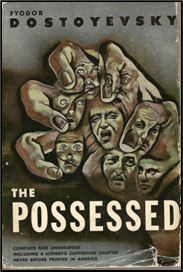 xxxxxOn returning to Russia in 1871 he again took up journalism. He became editor of the conservative Weekly Citizen in 1873, and three years later founded his Writer’s Diary, a monthly journal which proved an enormous success, popular for its articles on current events as well as for its short stories and matters of general interest. And to this period belongs Dostoevsky’s major political work The Possessed (also known as The Devils). A confused and violent interpretation of the growing movement towards revolution in Tsarist Russia, this showed his profound distrust of a radical movement in the hands left-
xxxxxOn returning to Russia in 1871 he again took up journalism. He became editor of the conservative Weekly Citizen in 1873, and three years later founded his Writer’s Diary, a monthly journal which proved an enormous success, popular for its articles on current events as well as for its short stories and matters of general interest. And to this period belongs Dostoevsky’s major political work The Possessed (also known as The Devils). A confused and violent interpretation of the growing movement towards revolution in Tsarist Russia, this showed his profound distrust of a radical movement in the hands left-
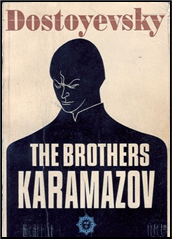
xxxxxThe last eight years of his life were spent in comparative prosperity, and by 1879, when The Brothers Karamazov was published -
xxxxxBy the very nature of their subject matter -
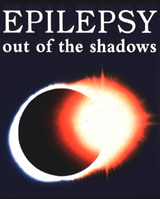
xxxxxIncidentally, Dostoevsky suffered from epilepsy nearly all his life. According to some accounts his first seizure occurred when he was nine years old. He coped well with the disability, but it could take up to a week to recover from a seizure, and he was deeply distressed in 1880 when his three-
xxxxx…… Existentialism, a theory which owes much to the pioneer work of Dostoevsky, came to be popularized by a number of 20th century French writers -
Vb-


